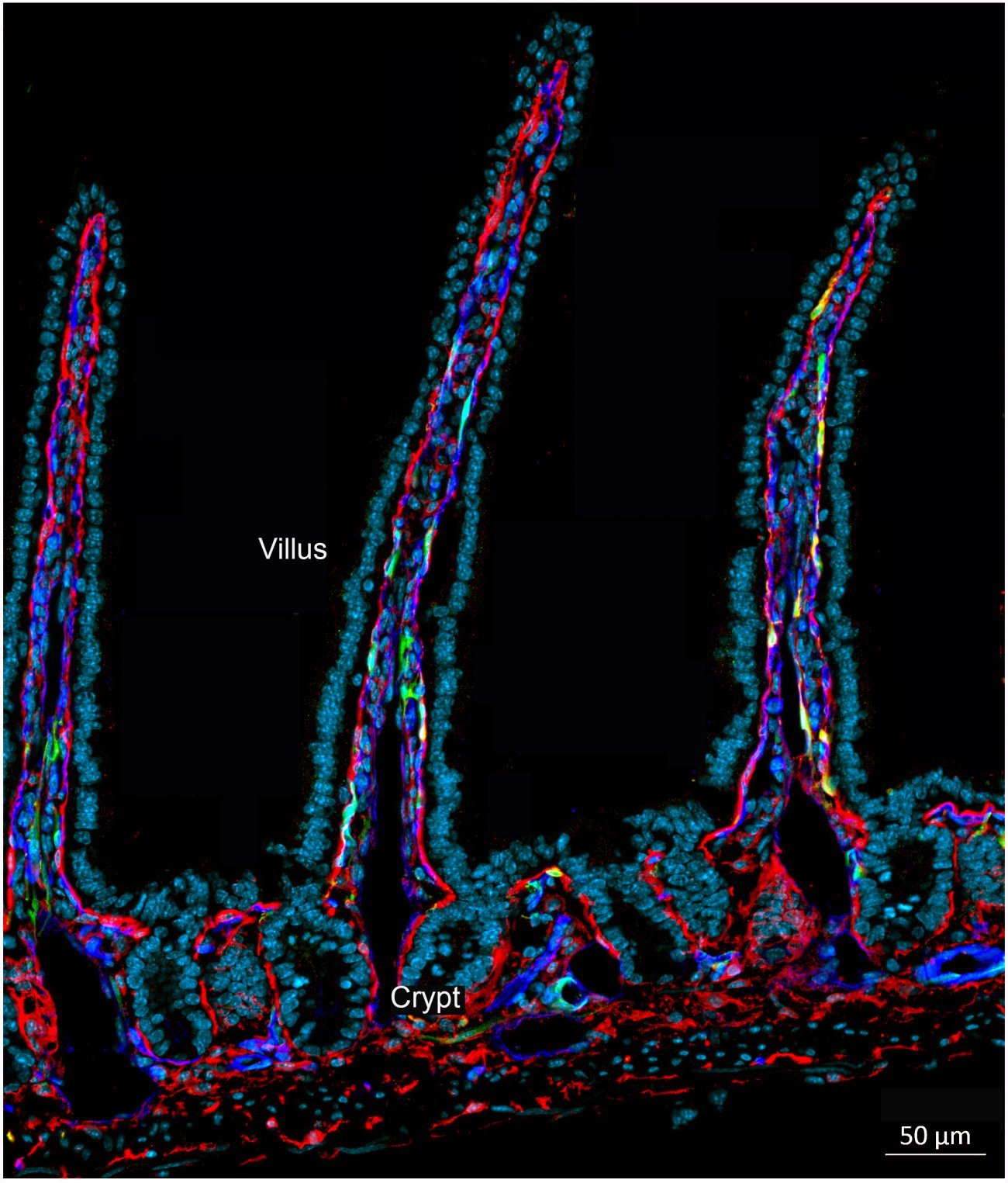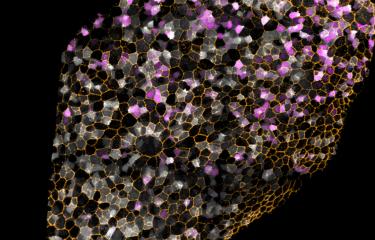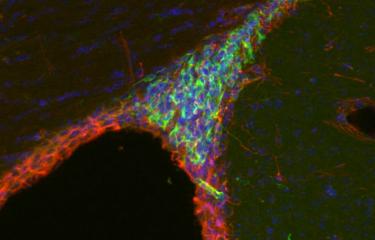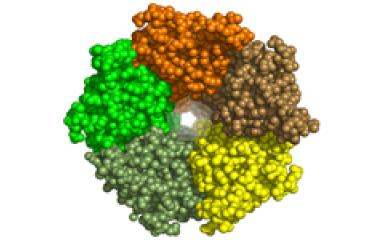The intestine is responsible for absorbing nutrients while protecting the body from external aggression, a task performed by a complex intestinal barrier. Scientists from the Institut Pasteur demonstrated in a mouse model that a population of tissue-resident cells known as stromal cells is crucial for the development of a functional intestinal barrier in the first few weeks after birth. Absence of these cells induces a defect in postnatal growth and increases susceptibility to intestinal inflammatory diseases. These findings were published in the journal Cell Stem Cell on May 5, 2022.
The intestinal barrier allows assimilation of nutrients while ensuring a proper defense against potential pathogens. The first weeks after birth are critical in this process as the intestine undergoes important steps of maturation and becomes colonized by microorganisms. In a few weeks, intestinal stem cells become restricted to the crypts, while differentiated epithelial cells ensuring absorption and defense migrate to the villi, which are in contact with the digested food and the microbiota.
In this study, scientists from the Institut Pasteur used an animal model to identify a population of stromal cells that develops before weaning age and promotes the maturation of the intestinal barrier. The stromal cells identified by the scientists are in contact with epithelial cells and receive a signal via their growth factor receptor (PDGFRa). This signal induces a new "mature" stromal niche that promotes intestinal epithelial cell differentiation and balanced immunity.
If the signal is blocked, the intestine does not develop properly in the first weeks of life, inducing a delay in postnatal growth and perturbations of intestinal homeostasis. At the "young adult" stage, individuals with such an overreactive intestine will develop pathological responses to injury and increased susceptibility to intestinal inflammation.
"We identified a subpopulation of stromal cells in the first weeks after birth that is essential for the maturation of the postnatal intestine. By forming a specialized niche in the villi, these stromal cells provide local cues for the proper differentiation of epithelial and immune cells, which are key players in the intestinal barrier," explains Lucie Peduto, Head of the Stroma, Inflammation & Tissue Repair Unit (Institut Pasteur/Inserm) and lead author of the study.
Though the study was performed in an animal model, these stromal cells have also been identified in humans. This study could shed new light on the mechanisms underlying development of intestinal inflammatory diseases in childhood and young adulthood, paving the way for novel therapeutic approaches.
The research was funded by the European Research Council (ERC), Inserm, and the French Foundation for Medical Research.

Fluorescence imaging of the intestinal barrier in a mouse model.
The cell nuclei are in cyan gray, the stromal cells in red and green, and the blood vessels are stained in blue.
© Stroma, Inflammation & Tissue Repair Unit – Institut Pasteur
Source
PDGFRα-induced stromal maturation is required to restrain postnatal intestinal epithelial stemness and promote defense mechanisms, Cell Stem Cell, May 5, 2022
Jean-MarieJacob1, Selene E.Di Carlo1,Igor Stzepourginski1, Anthony Lepelletier1, Papa Diogop Ndiaye1,Hugo Varet2,3, Rachel Legendre2,3, Etienne Kornobis2,3, Adam Benabid1, Giulia Nigro1, Lucie Peduto1
1Stroma, Inflammation & Tissue Repair Unit, Institut Pasteur, Université Paris Cité, INSERM U1224, Paris, France
2Transcriptome and Epigenome Platform-Biomics Pole, Institut Pasteur, Université Paris Cité, Paris, France
3Bioinformatics and Biostatistics Hub, Institut Pasteur, Université Paris Cité, Paris, France





